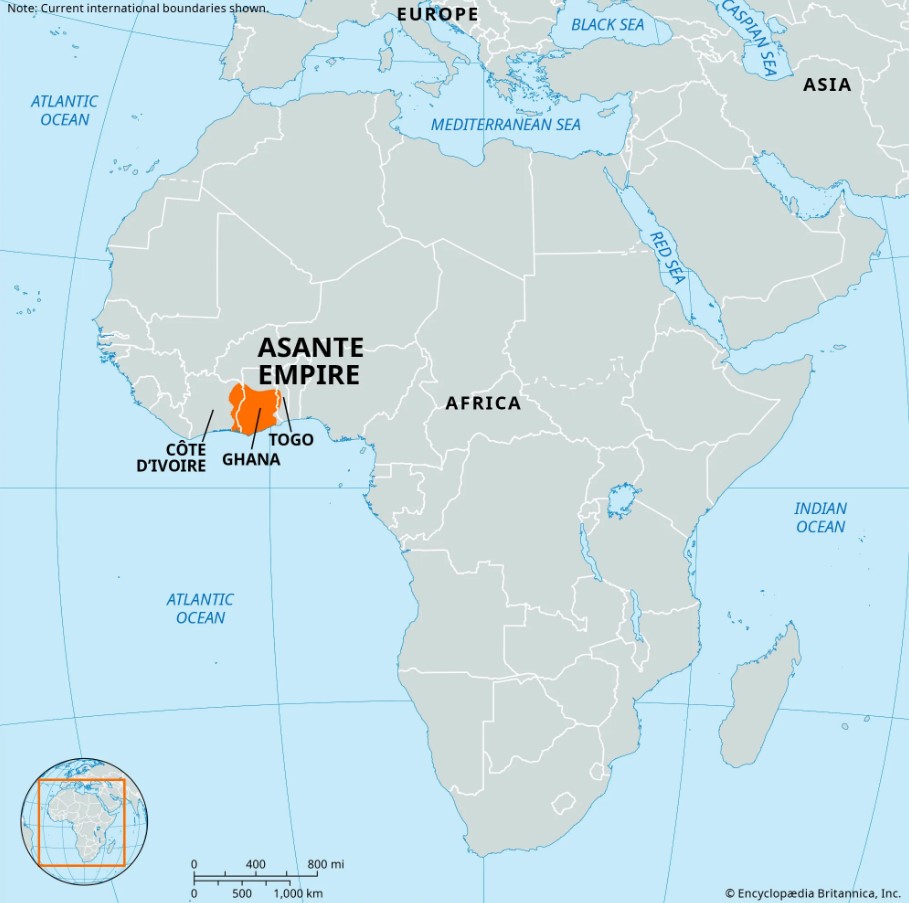What’s Happening
The UK’s British Museum, Victoria & Albert Museum, as well as the Manhyia Palace Museum in Ghana have announced an “important cultural” collaboration which will see a series of Asante artifacts returned to Ghana – temporarily.
According to UK law, artifacts within the British Museum (and associated museums) cannot be returned to their country of origin. The British Museum Act of 1963 states as follows:
(1)The Trustees of the British Museum may sell, exchange, give away or otherwise dispose of any object vested in them and comprised in their collections if—
(a)the object is a duplicate of another such object, or
(b)the object appears to the Trustees to have been made not earlier than the year 1850, and substantially consists of printed matter of which a copy made by photography or a process akin to photography is held by the Trustees, or
(c)in the opinion of the Trustees the object is unfit to be retained in the collections of the Museum and can be disposed of without detriment to the interests of students:
Provided that where an object has become vested in the Trustees by virtue of a gift or bequest the powers conferred by this subsection shall not be exercisable as respects that object in a manner inconsistent with any condition attached to the gift or bequest.
(2)The Trustees may destroy or otherwise dispose of any object vested in them and comprised in their collections if satisfied that it has become useless for the purposes of the Museum by reason of damage, physical deterioration, or infestation by destructive organisms.
The act does not prohibit, however, the “lending” of objects from the museum’s collections, under certain circumstances. The act states as follows:
The Trustees of the British Museum may lend for public exhibition (whether in the United Kingdom or elsewhere) any object comprised in the collections of the Museum:
Provided that in deciding whether or not to lend any such object, and in determining the time for which, and the conditions subject to which, any such object is to be lent, the Trustees shall have regard to the interests of students and other persons visiting the Museum, to the physical condition and degree of rarity of the object in question, and to any risks to which it is likely to be exposed.
The clause which allows the museum to “lend” objects is being used to return an assortment of items to Ghana. In total, 17 items will be returned to Ghana, of which 13 are royal regalia of the Ashanti empire, of the Asante people.
“These objects are of cultural, historical and spiritual significance to the Asante people. They are also indelibly linked to British colonial history in West Africa, with many of them looted from Kumasi during the Anglo-Asante wars of the 19th century” -The joint statement from the three museums
The British Museum itself estimates it holds 239 Asante regalia items in its collection. This is a mere fraction of the total Asante items held by both other museums in the UK, as well as around the world.

The majority of the UK’s collection was looted during the Anglo-Asante wars of 1873-74 and 1895-96. The items being returned were looted in the first Anglo-Asante war, and purchased by the Victoria & Albert Museum in an auction in 1874.
A Wider Problem
The British Museum has long been subject to criticism over the vast amount of foreign artifacts it holds in its collections. In total, the British Museum has a collection of over 8 million items, of which the vast majority are estimated to originate from outside the UK.
Of these items, a significant number come from British colonial conquests, both in Africa and around the world. A number of European countries have also requested items within the UK’s collection to be returned to them, which has routinely been denied.
As time has gone on, and efforts are made to examine and reconcile Europe’s colonial history, many of the nations which were former colonies of the UK have requested their relics back from the UK.
The UK’s refusal to return artifacts has lead to political tension between them and a number of other nations, who accuse the UK of stealing the artifacts from them. In May of 2023, the UK refused to return to Ethiopia the remains of an Ethiopian Prince, Prince Dejatch Alemayehu of Abyssinia, who was orphaned during a UK war with Abyssinia in 1868. The Prince was taken back to the UK where he died due to pleurisy. Ethiopia has made several requests for the return of the prince’s remains, all of which have been routinely denied.
Nana Oforiatta Ayim, a special adviser to the Minister of Culture in Ghana, has said that the loan is a “starting point”, but has called for the proper return of the artifacts held by the UK.
“I’ll give an analogy, if somebody came into your house and ransacked it and stole objects and then kept them in their house, and then a few years later said, ‘You know what, I’ll lend you your objects back,’ how would you feel about that?” -Nana Oforiatta Ayim


